Partners from Turkey and Spain—Fatma Sumeyye and Burcu (ASSALAM), along with Javi (AMIGOS Europa)—explored ViN’s community sites in Okhaldhunga, Taluwa, Thulachhap, Bhadaure, and Narayansthan to refine ESC volunteering opportunities and enhance community development volunteering.
Executive Summary
From 10–14 May 2025, ASSALAM’s Fatma Sumeyye and Burcu, alongside Javi from AMIGOS Europa, undertook a comprehensive field visit with Volunteers Initiative Nepal. Their mission: to validate partner accommodation, sample local cuisine, and witness firsthand the impact of humanitarian aid volunteering and sustainable agriculture volunteering projects. Insights gathered will directly inform upcoming European Solidarity Corps deployments and optimize the ESC application process.
Introduction
The Aid with Heart for Humanity (AHH) Project, aligned with the EU’s rights-based policies, supports disadvantaged communities in Nepal, Tanzania, and Togo. It enhances social welfare, empowers women, children, and youth, and promotes sustainable agriculture. AHH strengthens global citizenship and knowledge sharing by fostering teamwork, leadership, and cultural respect. Involving 56 individuals and institutions, it aims for lasting social impact and capacity building through international volunteering programs.
As a proud Humanitarian aid volunteering partner in Nepal, ViN coordinates placements for European Solidarity Corps volunteers in roles spanning women’s empowerment volunteering, youth volunteering abroad, and community development volunteering. Our Turkish and Spanish partners conducted this vital Preparation Visit to tailor support and logistics. The team was facilitated by Dinesh Khatiwada, Volunteer Manager at VIN.
Visit Overview: Key Dates and Purpose
- Dates: 10–14 May 2025
- Objective:
- Assess volunteer lodging, communal spaces, and safety protocols.
- Test meal plans against diverse dietary needs.
- Observe core projects—libraries, water infrastructure, permaculture, microcredit.
- Gather actionable feedback for the ESC application process and volunteer orientation.
Day-by-Day Narrative
Day 1: 11 May – Arrival and Orientation
- Welcome to Kathmandu: Traditional garlands and ViN T-shirts greeted Fatma, Burcu, and Javi at the airport.
- Headquarters Briefing: Overview of ViN’s mission, structure, and volunteer support systems.
- Logistical Walk-through: Inspected accommodation rooms, communal kitchen, safety measures, and received cultural exchange programs and Nepal tips.
Day 2: 12 May – Okhaldhunga Road Journey & Library Visit
- Scenic Drive: A 250 km journey through terraced hills, river valleys, and forests.
- Narayansthan Library: Witnessed a vibrant reading program—an example of NGO support in Nepal. Interacted with children and discussed teaching English in Nepal modules.
- Arrival at NTCLC (Nisankhe): Warm village welcome, followed by a tour of Early Childhood Development classrooms and volunteer quarters.
Day 3: 13 May – Site Visits & Community Engagement
- Water Tank Project (Taluwa): Observed infrastructure benefiting 250+ households—core to sustainable development volunteering.
- Permaculture Farm (Thulachhap): Explored organic farming techniques under sustainable agriculture volunteering.
- Home Stays: Shared meals with local families—authentic cultural exchange at Bhadaure village.
- Community School (Okhaldhunga): Engaged with teachers and students about ViN’s educational programs.
- Women’s Microcredit Cooperative: Met 180 women managing savings and loans—highlight of women’s empowerment volunteering.
- Evening Strategy Session: Mapped the next ESC cohort’s volunteer schedules, activity plans, and impact metrics.
Day 4: 14 May – Return & Reflection
- Journey Back: Partners compared notes on room privacy enhancements, expanded vegetarian meal options, and streamlined road itineraries.
- Debrief at ViN HQ: Consolidated recommendations into an updated volunteer handbook and final ESC application process brief.
Key Takeaways and Observations
- Accommodation: Secure and comfortable; adding privacy curtains and individual lockers will improve volunteer satisfaction.
- Nutrition: Local menus are fresh and balanced; introducing gluten-free and vegan options will broaden appeal.
- Impact: Water, library, and permaculture projects drive measurable gains in health, literacy, and income.
- Engagement: Community members—from schoolchildren to micro-entrepreneurs—demonstrated genuine ownership.
- Logistics: Scenic drives delight volunteers but require optimized scheduling to maximize field time.
ESС Volunteer Testimonials
María González (Spain):
“My ESC volunteering in the Narayansthan Library ignited a lifelong passion for literacy promotion.”
Luca Romano (Italy):
“Helping build the Taluwa water tank remains my proudest moment in community development volunteering.”
Sophie Dubois (France):
“Permaculture training at Thulachhap transformed my skills and mindset on sustainable agriculture volunteering.”
Anouk Jansen (Netherlands):
“Teaching English at NTCLC was challenging but immensely rewarding—ViN’s mentorship made all the difference.”
Nepali Beneficiary Testimonials
Sabina Tamang (Okhaldhunga):
“Volunteers taught my children to read. Now they eagerly wait for library day every week.”
Sita Rai (Taluwa):
“Clean water from our new tank changed our lives—no more long daily treks for water.”
Kamala Shrestha (Thulachhap):
“I learned organic farming techniques from volunteers. My harvest and earnings have doubled.”
Anju Magar (Bhadaure):
“The microcredit cooperative helped me start a tailoring business. I’m now financially independent.”
Frequently Asked Questions
How do I apply for Volunteer placements in Nepal?
Complete ViN’s online form with CV, motivation letter, and ESC documents for hands-on ESC application process support.
What roles are available in humanitarian aid volunteering?
From teaching English and library support to water infrastructure and agriculture, roles match varied skills and passions.
Can I join women’s empowerment volunteering?
Yes—ViN’s microcredit and leadership workshops welcome EU volunteers committed to gender equity.
What are youth volunteering abroad opportunities?
Placements range from two weeks to 12 months, perfect for students and recent graduates eager for international experience.
Do I need prior experience for community development volunteering?
No—ViN provides thorough orientation and ongoing mentorship; dedication is the only prerequisite.
What training does ViN offer for sustainable agriculture volunteering?
On-site permaculture workshops equip volunteers with practical organic farming skills.
How does ViN ensure volunteer safety and well-being?
Through secure lodgings, local support staff, emergency protocols, and detailed cultural briefings.
Conclusion
The insights gained during this Preparation Visit by Fatma Sumeyye, Burcu, and Javi will elevate our European Solidarity Corps placements and strengthen the Aid with Heart for Humanity framework.
Ready to make an impact?
Join Volunteers Initiative Nepal’s international volunteering programs, which range from women’s empowerment and youth volunteering abroad to sustainable agriculture volunteering.
🔗 Apply Now | 💖 Donate | 📢 Share this story with friends and family
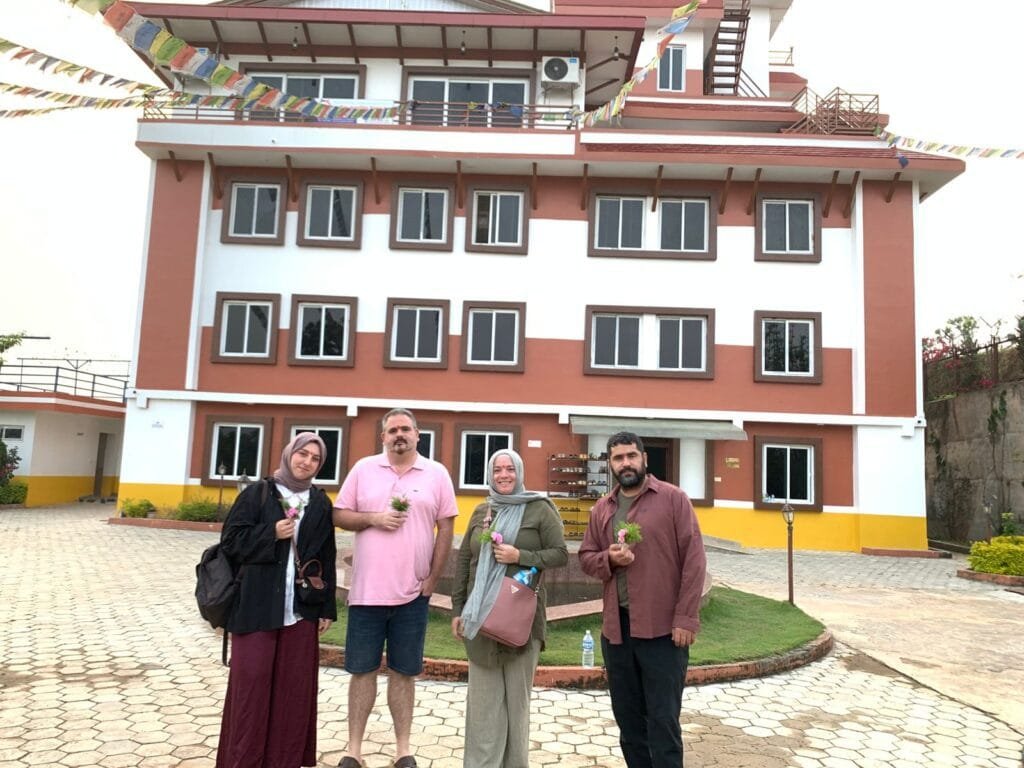
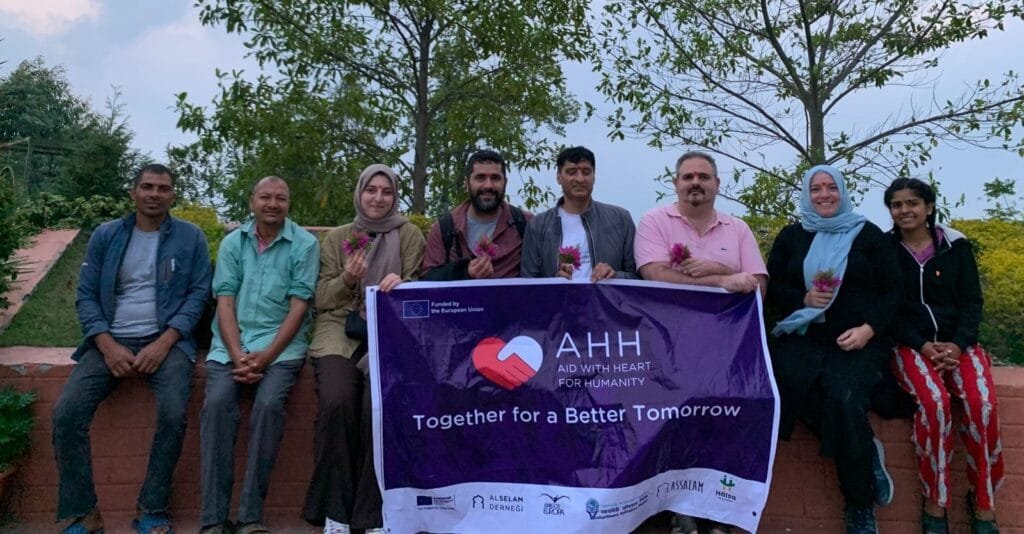
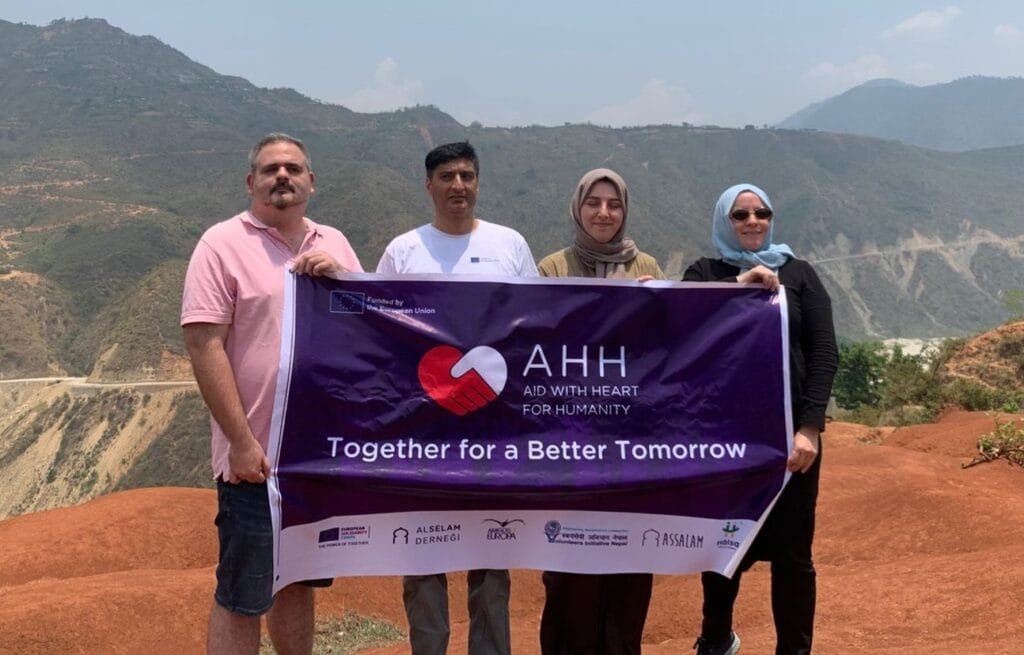
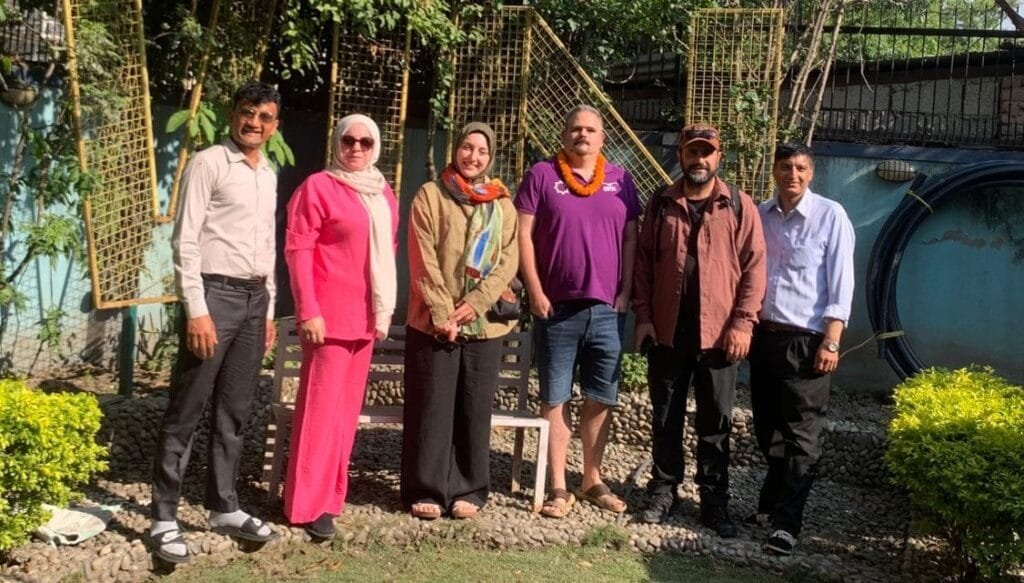
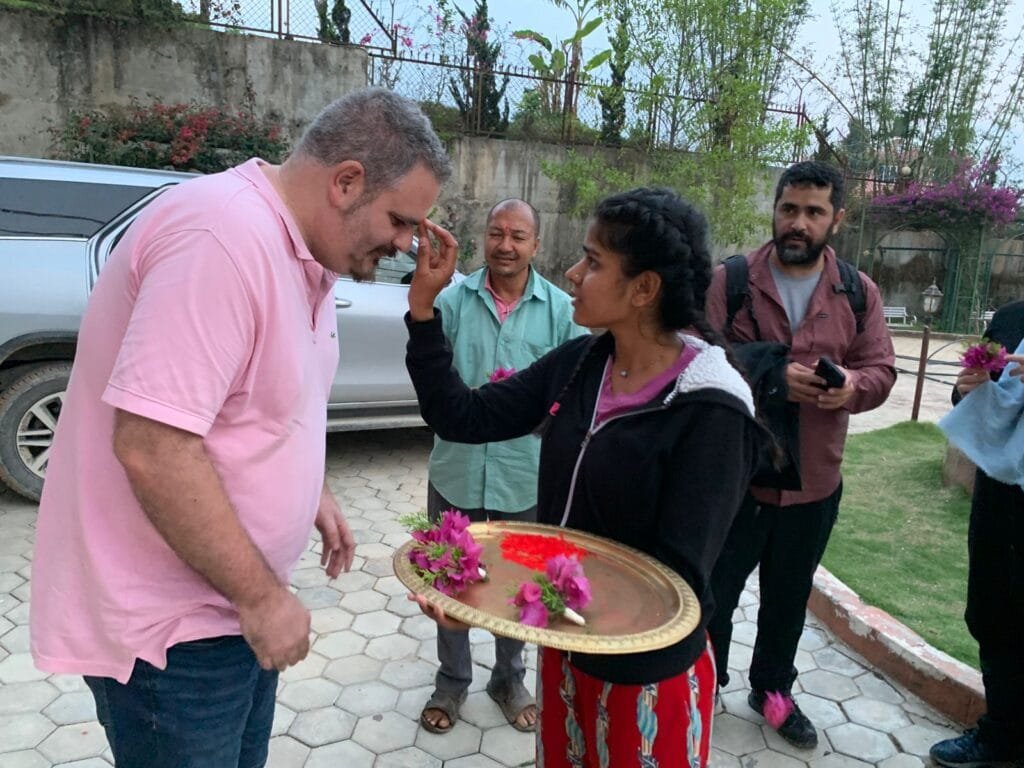
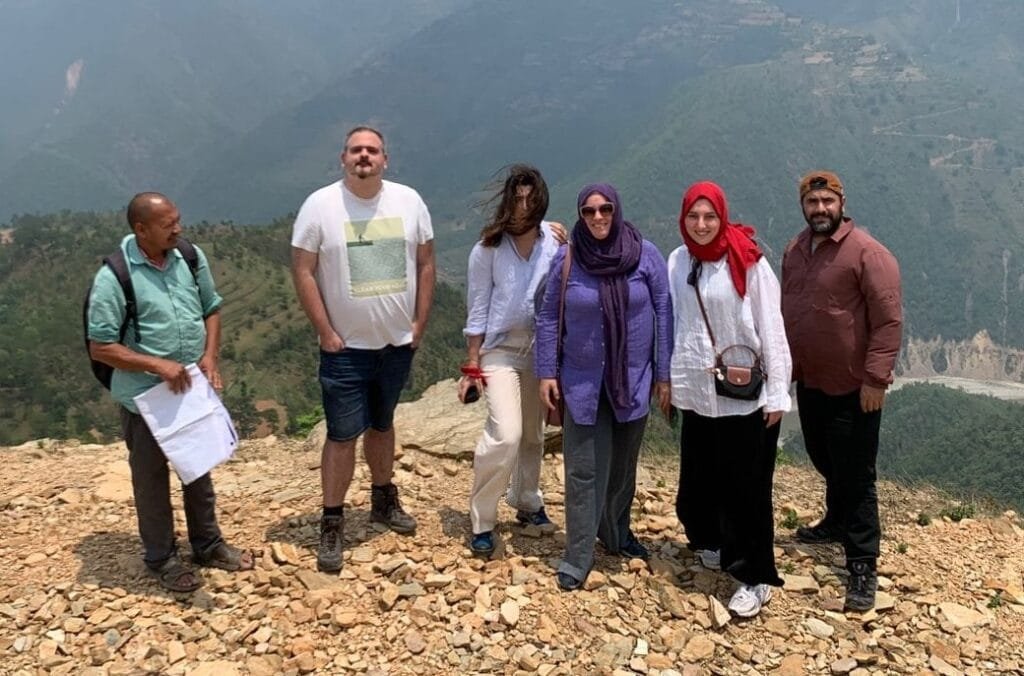

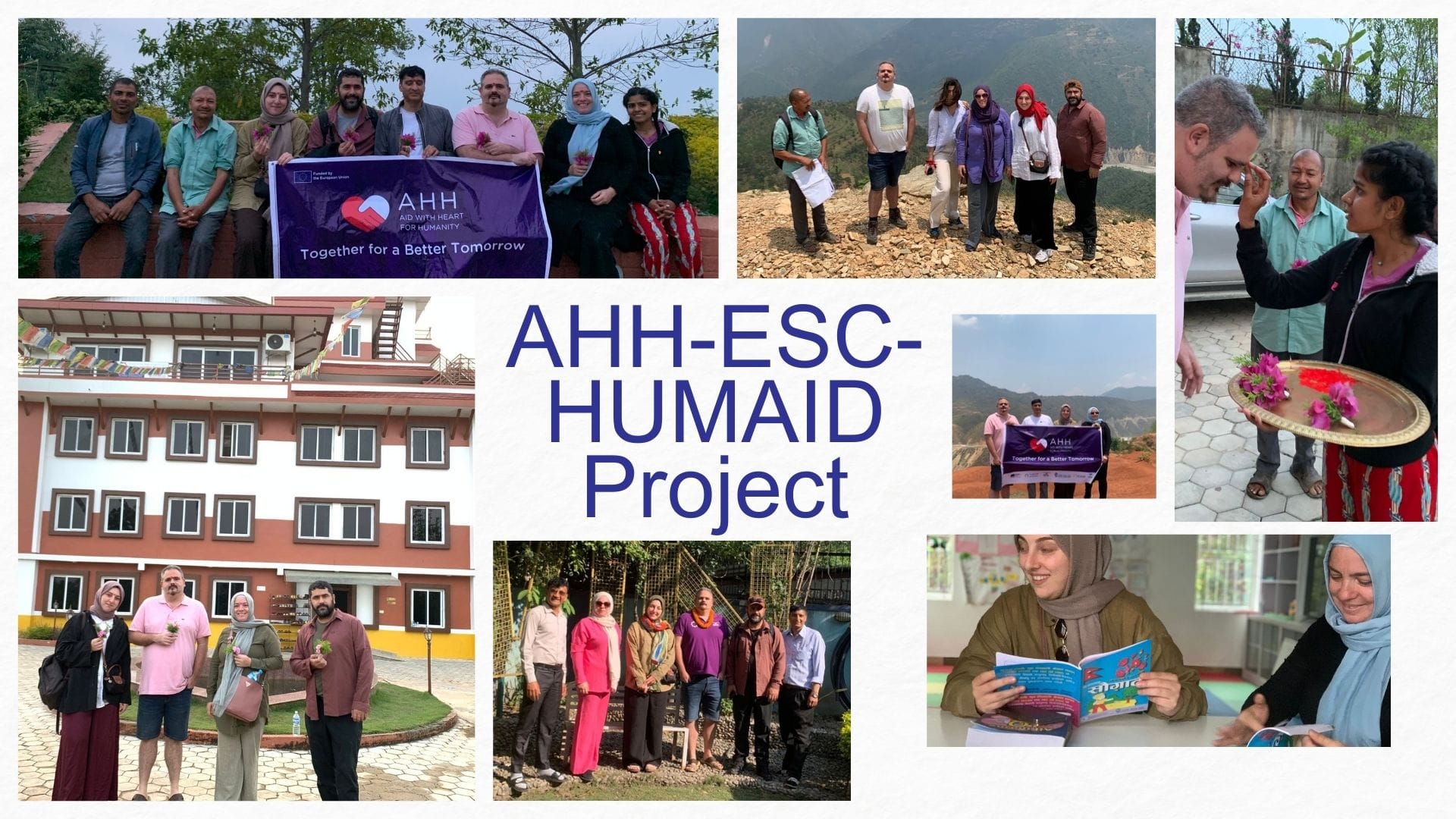
 Member of
Member of